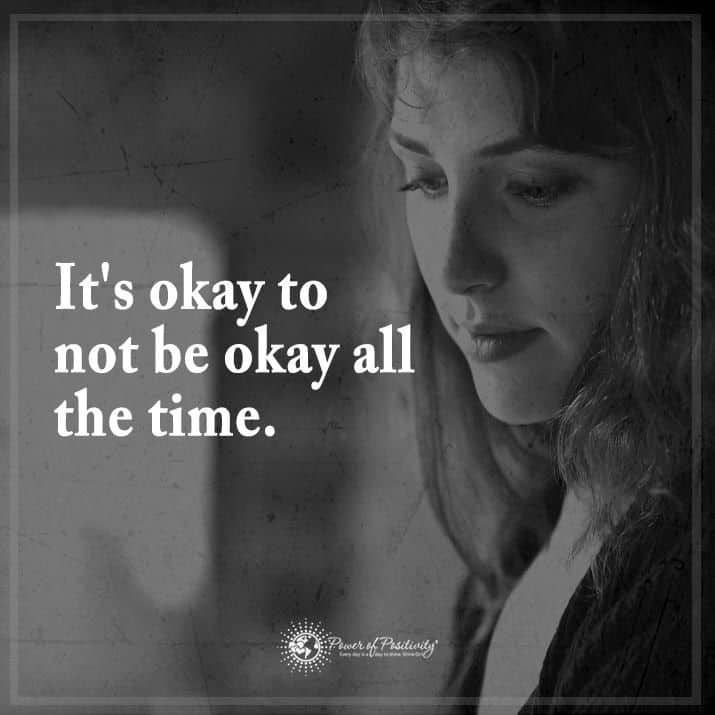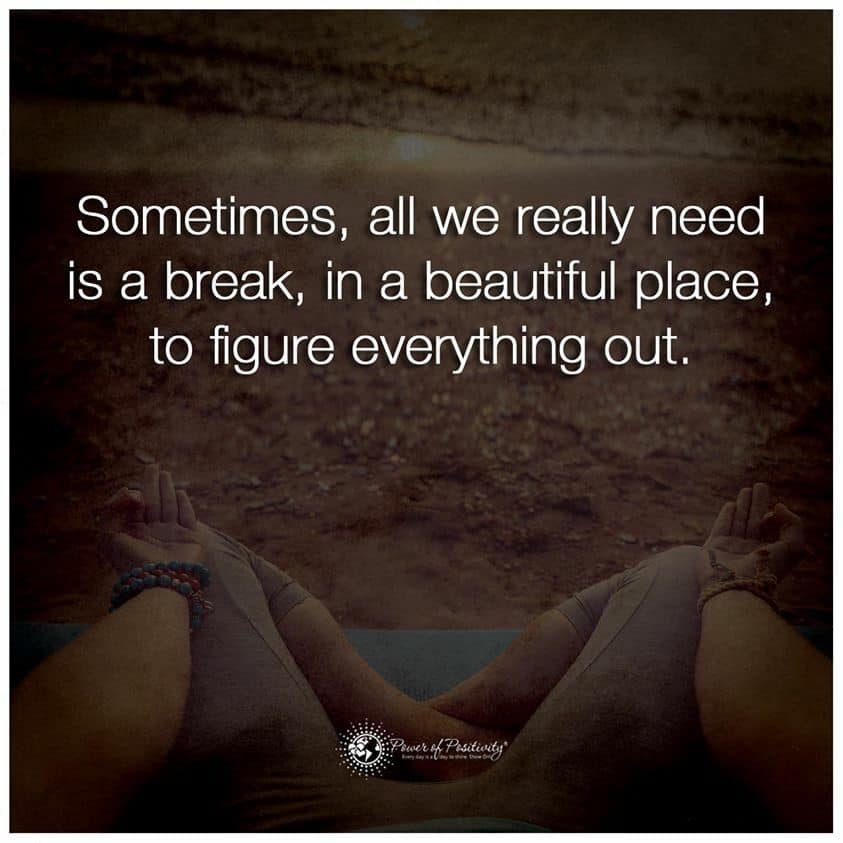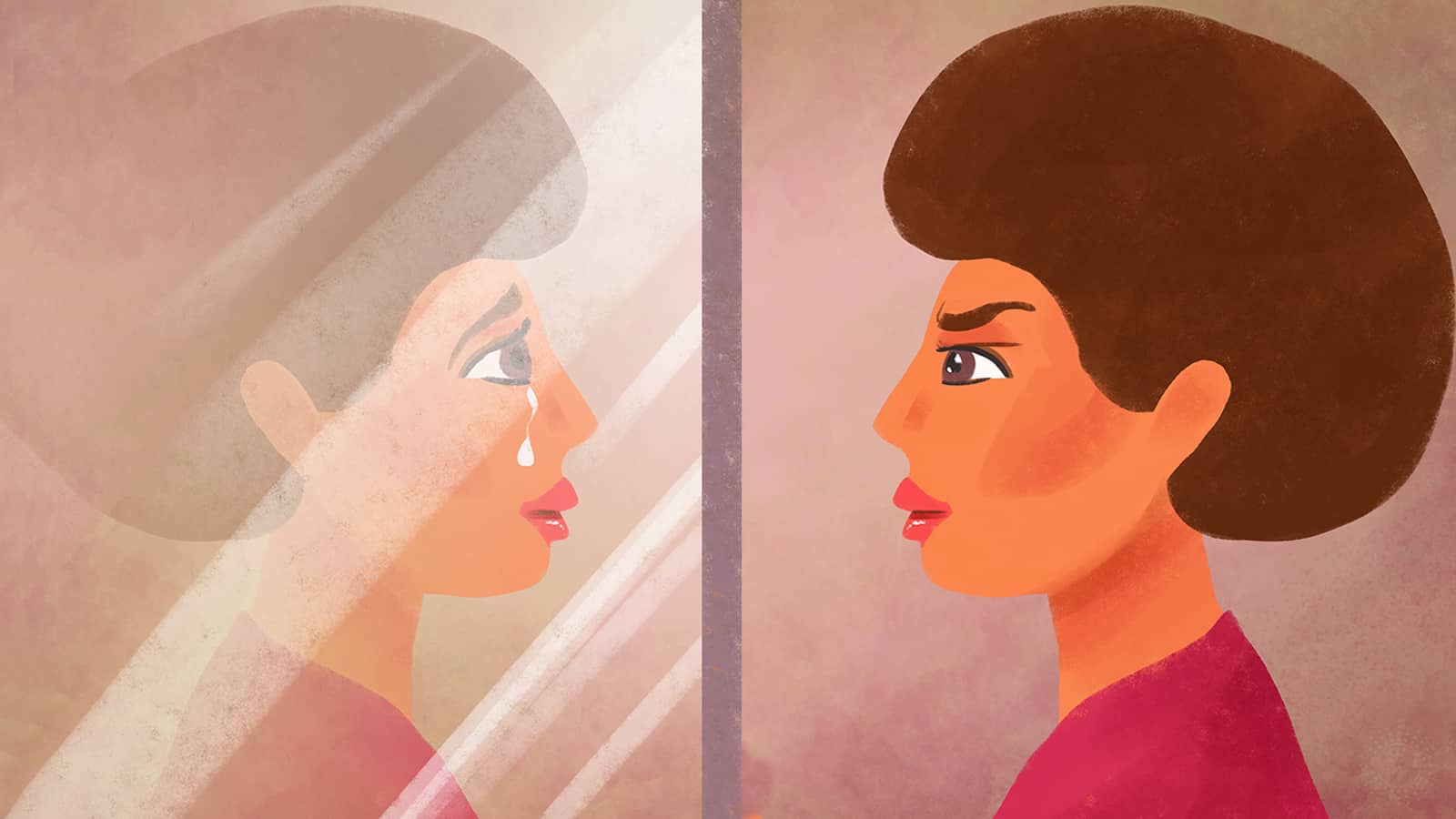Everyone experiences sadness in life, and the feeling may seem to linger during uncertain times. There comes the point when you may begin questioning whether you are feeling sad or suffering from depression. Neither situation is great, but feeling sad is easier to overcome than depression.
Depression and sadness are incredibly different, although feeling sad is sometimes part of being depressed. Feeling sad will feel like something is weighing on you. The longer it goes on, the worse the sensation gets, especially if you don’t know when it will end.
This heaviness and lingering sadness are often confused with depression. This isn’t the case, however, as it is a normal component of being sad. Depression causes more than just sadness, as it results in the person suffering feeling hatred toward themselves.
The difference between the two is important because it isn’t a good thing to mislabel sadness as depression. Mislabeling can lead to further issues, and it can hinder the healing process. Psychologists have dissected this topic and delved into the differences between sadness and depression to help you understand.
What is Depression?
 Before understanding the differences between feeling sad and having depression, it is important to understand depression fully. Depression is considered a clinical mental disorder and often requires medication and therapy to overcome. There are many all-natural remedies to help treat depression, but a professional opinion should always be gathered first.
Before understanding the differences between feeling sad and having depression, it is important to understand depression fully. Depression is considered a clinical mental disorder and often requires medication and therapy to overcome. There are many all-natural remedies to help treat depression, but a professional opinion should always be gathered first.
When you are depressed, things that used to be enjoyable won’t be interesting anymore. You may feel like you hate yourself and become disgusted with who you are or the things you have done. Other common characteristics of depression include low activity levels, unexplained exhaustion, and a lack of emotion.
Depression can interfere with your life, causing problems with your career or relationships. You may lose motivation or become unable to focus or think clearly. This can lead to making mistakes, becoming too distracted to engage, or simply giving up on things.
What Causes Depression
It can be hard to pinpoint what causes depression in each person, but research shows common risk factors. The risk factors include hormonal imbalances, genetics, medical conditions, and side-effects of medication. Unexpected life changes, experiencing trauma, and high levels of stress are also risk factors for depression.
Not everyone who experiences the factors mentioned above will become depressed, but it increases the chances. Oftentimes, for those with risk factors, depression is triggered by tragic life events.
These situations include the following:
-accidents or unexpected illness
-the death of someone you love
-loss of a career or feeling stuck
-relationship problems
-family complications
While some people may be able to handle these triggers without experiencing depression, those with risk factors aren’t always able to do so. This is an indicator that depression has set in needs to be treated.
The Difference Between Depression and Feeling Sad
Depression and sadness are both painful and hard to deal with. While depression is a clinical disorder and feeling sad is not. It does not mean that sadness isn’t painful. The biggest difference between the two is that depression is a mental illness, whereas feeling sad is an emotion.
Loss is a large factor when it comes to sadness. Dealing with a loss of any kind can cause sadness, no matter what the loss was. If you feel like you lost your sense of security, control, or safety, you may feel sad.
Likewise, of course, you will feel this way if you lost a loved one, whether to death or the end of a relationship. Even feeling like you lost your ability to trust someone will cause you to feel sad. Another big loss that could cause sadness is losing your job or losing financial stability.
Sometimes when you are sad, you may experience some signs of depression, such as a lack of motivation. You might not want to do things you normally love to do, either. While this is initially alarming, you may notice the desire to do these things return, but the desire wouldn’t return with depression.
Feeling sad and going through the grieving process is normal, even though it hurts. You will be able to continue moving forward in life, however, and learn to live again. Depression, on the other hand, hinders your ability to move forward and continue living.
Another important difference is that depression can cause feelings of self-hatred, and you won’t want to interact socially. On the other hand, sadness will cause you to show self-sympathy, and you will desire companionship.
 Why the Differences Matter
Why the Differences Matter
It may seem like mislabeling sadness for depression isn’t a big deal, but it is. By confusing sadness for depression, it makes depression seem like a natural response to a bad situation. However, this isn’t what depression is, as it is a mental illness and not a natural reaction.
For many, depression is a struggle that they are fighting to get through. When someone who is feeling sad is told they are depressed, it will likely make them even sadder. They will feel like something is wrong with them and that they are not responding appropriately.
Being sad in a tough or unexpected situation is certainly normal, and anyone is right to feel sad. This feeling is likely to occur throughout the situation. So, it is normal to feel sad the entire time the process is occurring, and even during the entire grieving process.
Unfortunately, many people feel like you should rush back to your normal life after experiencing great sadness. While this may be fine for some, others may take much longer to get through the situation. Although this happens, experiencing prolonged sadness is still normal, and you shouldn’t feel bad about it.
This is another reason many people are quick to mislabel sadness as depression. They think returning to normal life should come easily after experiencing sadness, while this isn’t the case. With that misguided label potentially comes medicating or working to treat depression.
Treating depression when someone doesn’t have depression will only prolong the grieving process. It is important to remember that it is normal to take time to grieve.
This involves going through it as you would go through any other sad time. If you don’t allow yourself to go through the process, you will take much longer to get through it. You have to acknowledge that life has changed somehow and then work to develop a new sense of normalcy.
Even years after the incident, you may experience sadness over it again. This is still normal and doesn’t mean that you are depressed.
What You Can Do to Overcome Feeling Sad
1 – Connect with Others
Connecting with other people is essential to overcoming sadness. While this isn’t always possible in person, there are ways to connect virtually that are almost just as good. Video-chatting is one option, while sending pictures and text messages is another choice.
Of course, there is always the old-fashioned phone call to catch up with your loved ones, too. While this isn’t the same as meeting up and exchanging hugs or handshakes, it still connects. Looking into one another’s eyes (yes, even virtually) or hearing your loved one’s voice will work wonders on your psyche.
2 – Find Control
When you feel like you have lost control of some aspect of your life, it is important to find that sense of control again. This can be a challenge when you feel like there is no way to regain control of the situation. Luckily, there is a way to do this.
To find a sense of control in your life, you have to find something to control every day. This could be something small such as listening to music, exercising, or cooking. When you see something through, such as listening to a song from beginning to end, you will feel your control returning.
Before you know it, you will want to start many things just to finish them. You could also step it up and take control of a mess in your home or organize files that have gotten out of control. These bigger tasks will make you feel much better.
3 – All-Natural Depression Remedies
Exercise
Exercise seems to make everything better, and research has proven that it works to treat depression. It releases endorphins in your body, which are hormones known to boost your mood. Exercise is good for your physical health, and it stimulates positive mental health and increases brain function.
Talk to a Therapist
A professional therapist can help you work through depression. They will help you overcome whatever has triggered the depression, and they may be able to help find the underlying cause. The best part is that they can teach you positive coping mechanisms.
A therapist is helpful because you will be able to say whatever you feel without judgment. You won’t have to worry about it getting back to anyone it could hurt. Plus, an unbiased opinion from someone uninvolved is always helpful.
 Final Thoughts on Psychologists Explain Why Feeling Sad Is Not Depression
Final Thoughts on Psychologists Explain Why Feeling Sad Is Not Depression
Feeling sad is a terrible feeling, but it is important to understand that it is not depression. Sadness is an emotion, whereas depression is a mental illness that often requires treatment. However, this isn’t to downplay sadness because feeling sad is painful and hard to deal with.
Understanding the differences between sadness and depression is important because it helps with overcoming it. You will be able to act appropriately or get the treatment you need, depending on the issue.


















